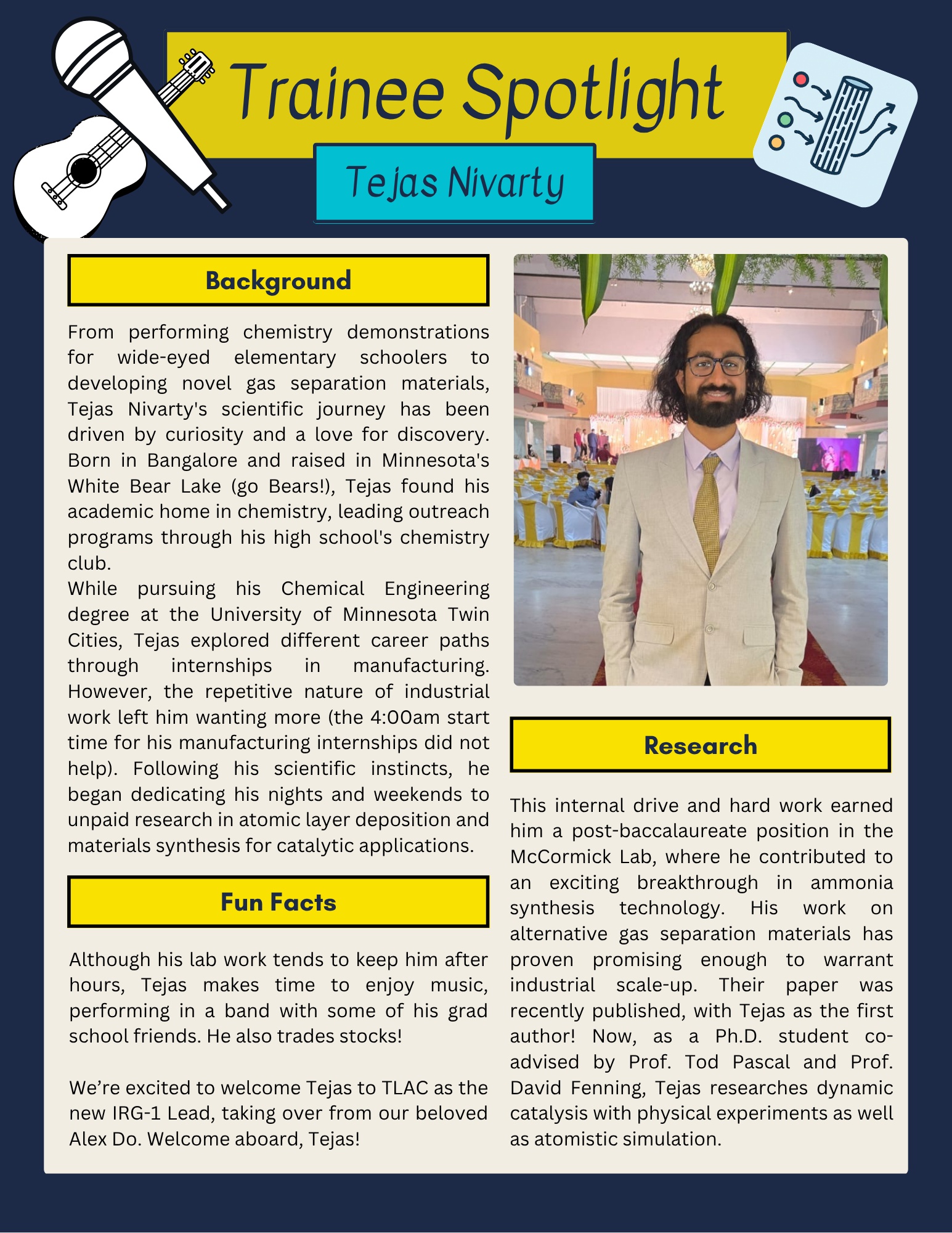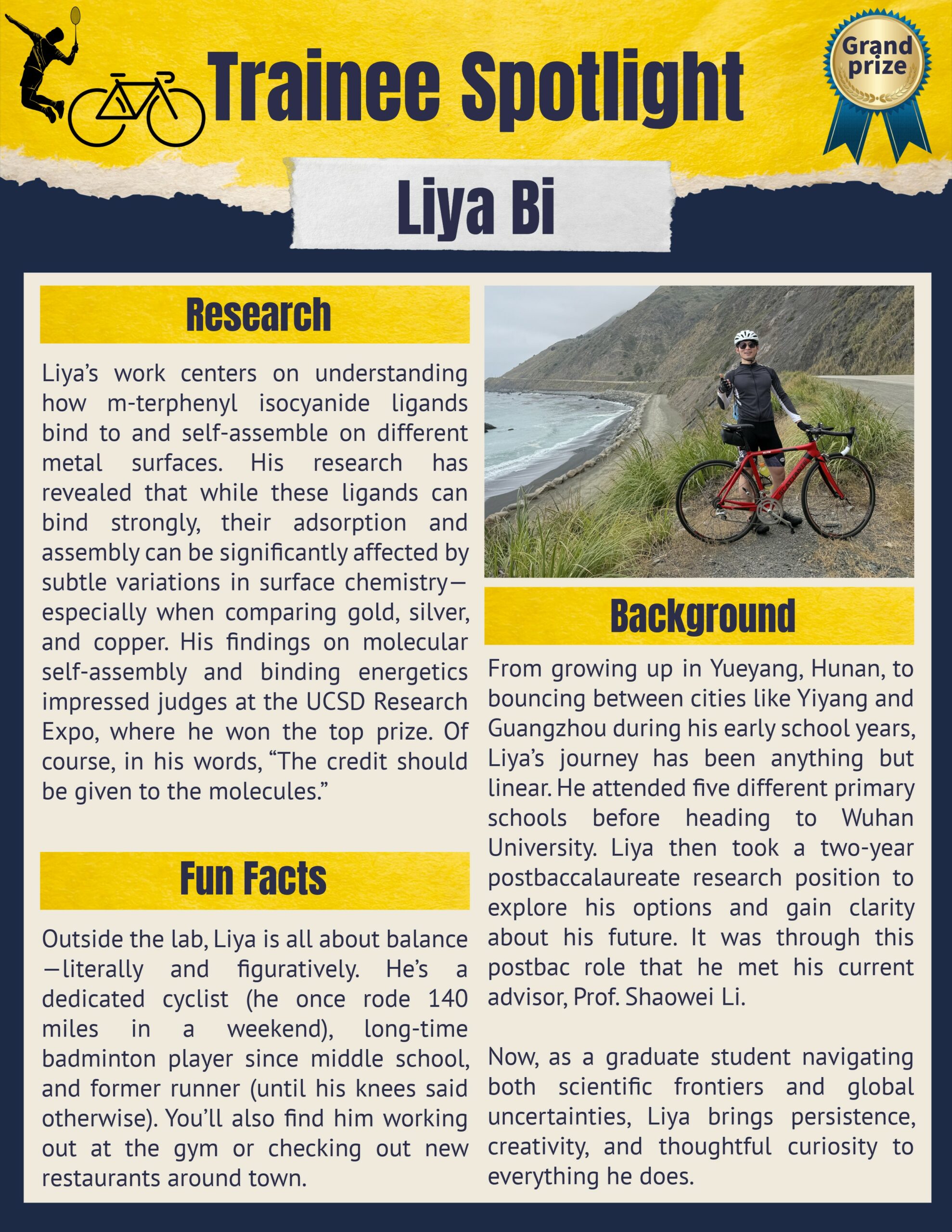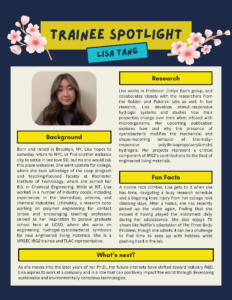Recent MRSEC News
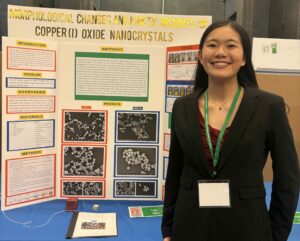
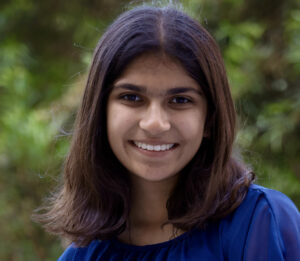 Both were awarded first place prizes and qualified to compete in the CA state competition. The awards ceremony was held on Thursday, March 13th at The Observatory North Park, with Ms. Vanitha Kumar, SVP at Qualcomm, as our keynote speaker. $40k in prizes were awarded, with top students winning their way to the California Science and Engineering Fair and 8 Grand Award winners qualifying for the prestigious International Science and Engineering Fair.
Both were awarded first place prizes and qualified to compete in the CA state competition. The awards ceremony was held on Thursday, March 13th at The Observatory North Park, with Ms. Vanitha Kumar, SVP at Qualcomm, as our keynote speaker. $40k in prizes were awarded, with top students winning their way to the California Science and Engineering Fair and 8 Grand Award winners qualifying for the prestigious International Science and Engineering Fair.
Congratulations to the UC San Diego MRSEC 2024 RIMSE Conference Travel Award Recipients!
This award supports travel expenses of up to $2,000 including registration fees, lodging, flights, meals, and ground transportation for the 2025 American Chemical Society (ACS) Spring Conference (March 23-27, 2025 in San Diego, CA). Congratulations on this well-deserved recognition to the undergraduates on their research efforts and achievements! We are very happy and proud to support their continued professional development as a MRSEC Alumnus, and we look forward to seeing the impact your participation will have at the conference and beyond.
- Aaron Levy
- Miguel Javiel
- Margaret Mullooly
- Ofure Osunbor
- Milena Zeru

Center research highlighted in UC San Diego Newsletter:
October 2024
Nanopillars Create Tiny Openings in the Nucleus Without Damaging Cells
UC San Diego researchers led by Zeinab Jahed have developed a technology to overcome one of biology's toughest barriers: a cell's nucleus. They engineered an array of nanopillars that can breach the nucleus of a cell—the compartment that houses our DNA—without damaging the cell’s outer membrane. This new "gateway into the nucleus" could open new possibilities in gene therapy, where genetic material needs to be delivered directly into the nucleus, as well as drug delivery and other forms of precision medicine.
Congratulations to the UC San Diego MRSEC 2024 RIMSE Conference Travel Award Recipients!
This award supports travel expenses of up to $2,000 including registration fees, lodging, flights, meals, and ground transportation for the 2025 American Chemical Society (ACS) Spring Conference (March 23-27, 2025 in San Diego, CA). Congratulations on this well-deserved recognition to the undergraduates on their research efforts and achievements! We are very happy and proud to support their continued professional development as a MRSEC Alumnus, and we look forward to seeing the impact your participation will have at the conference and beyond.
- Aaron Levy
- Miguel Javiel
- Margaret Mullooly
- Ofure Osunbor
- Milena Zeru
2024 Annual Review Meeting: Congratulations to the "Inclusive Excellence in Interdisciplinary Research" and Trainee Poster awardees!
Thank you to all those in attendance for our UC San Diego MRSEC 2024 Annual Review Meeting. We sincerely appreciate your valuable input and continued partnership, which play a crucial role in the success of our center.
We are pleased to announce the Top 3 Posters from the Trainee Poster Session on Thursday, September 19th 4-6pm PST, voted by 11 of our participating advisory committee members and Center affiliates. We recognized the impressive quality of all the posters presented during the Trainee Poster Session. Every trainee did a fantastic job, showcasing their hard work and innovative research.
- Lubna Amer, IRG1 (PI Jesse Jokerst): Mechanism of hierarchical plasmonic biomaterials engineered through peptide-directed self-assembly
- Aaron Bruckbauer, IRG2 (PI Mike Burkart): Rethinking Plastics: A different approach to algae-derived biodegradable polyurethanes
- Zhencun Guan, IRG2 (PI Jinhye Bae): Engineering Adhesive Hydrogels on Living Plants for Modulating Sensitive Plants and Drug Delivery
Additionally, congratulations again to the Inclusive Excellence Awardees 2024, announced during the September 19th annual meeting.
- Inclusive Excellence in Mentorship: Wade Shipley, IRG1 (PI Andrea Tao)
- Inclusive Excellence in Public Education: Yui Na, IRG1 (PI Akif Tezcan)
- Inclusive Excellence in Interdisciplinary Research: Liya Bi, IRG1 (PI Shaowei Li); Alex Do, IRG 1 (PI Tod Pascal); Yufei Wang, IRG1 (PI Andrea Tao)
Call for Nominations: UC San Diego MRSEC 2024 Inclusive Excellence Awards (submit by Monday, Sept. 9, 2024)
August 2024
The UC San Diego MRSEC is now accepting nominations for the 2024 UC San Diego MRSEC Inclusive Excellence Awards! The awards recognize undergraduate, graduate and postdoc trainees who have made intentional, sustained, and impactful contributions in the areas of equity, diversity, and inclusion (EDI) as related to the research and educational missions of our Center. Faculty can be nominated for the Interdisciplinary Collaboration category only. Each year we will honor individuals for recent (past 1-2 years) efforts in the following three categories:
-
Inclusive Excellence in Mentorship - This award category recognizes trainees who have demonstrated significant commitment to and excelled at inclusive and effective mentorship and support of other MRSEC scholars and students, particularly from groups underrepresented in materials science and engineering.
-
Inclusive Excellence in Public Engagement - This award category recognizes trainees who through any number of venues and activities have engaged a diverse and broader community (of K-12 students and/or teachers, and/or general public) on science and technology-related issues, including their research.
-
Inclusive Excellence in Interdisciplinary Collaboration in Research and Creative Activity - This award category acknowledges a team of trainees and faculty who have worked collaboratively across disciplinary boundaries on a creative project or initiative that has advanced materials science and engineering research or education, while also embodying principles of EDI in the process and even the product of their work.
Each award consists of a $300 gift card and a certificate. All members of the UC San Diego MRSEC community are encouraged to nominate or endorse colleagues.
ELIGIBILITY:
Eligible nominees are current, funded, or affiliated* UC San Diego MRSEC graduate/undergraduate students and postdoctoral researchers, and faculty (for the Interdisciplinary Collaboration category only).
*Trainees who are funded from other sources but are actively engaged in MRSEC-related projects.
NOMINATION FORM GUIDELINES:
-
- Nominations may be submitted by MRSEC faculty, trainees, staff, advisory committee members, and affiliates. Self-nominations and external nominations are accepted.
-
Please be sure to provide specific and detailed information about the nominee's EDI efforts as related to the specific award category. Descriptions should include frequency and duration of the efforts(s), the intended audience, and any demonstrated impact (quantitative or qualitative) or potential for impact of the effort(s). - 500 word limit
-
Optional: website links, videos, online content, and supporting documents (e.g., flyers, promotional materials, documented feedback).
-
The nominator must provide the name and e-mail address of one additional person who can corroborate the EDI efforts of the nominated person(s).
Nominations can be submitted through Monday, September 9 (by 11:59 PM). Awards will be announced at the UC San Diego MRSEC Annual Review Meeting on Thursday, September 19, 2024.
Contact Janka Bond at j2bond@ucsd.edu with any questions or inquiries.
Center research highlighted in UC San Diego Newsletter:
August 2024
Sustainable and Reversible 3D Printing Method Uses Minimal Ingredients and Steps
The highlight in UC San Diego Today by Liezel Labios highlights MRSEC research, published in Nature Communications. The method using liquid polymer solution, PNIPAM, and salt water solution to create solid structures presents sustainable solutions to materials printing. Read full story at the title link.
Paper: “Sustainable 3D printing by reversible salting-out effects with aqueous salt solutions.” Co-authors include Donghwan Ji, Joseph Liu, Jiayu Zhao, Minghao Li and Yumi Rho, UC San Diego; and Hwanshoo Shing and Tae Hee Han, Hanyang University, Korea.
UC San Diego MRSEC and North Carolina Agricultural and Technical (NCAT) State University Receive an NSF PREM Award!
July 2024
Researchers from North Carolina Agricultural and Technical (NCAT) State University and the UC San Diego MRSEC have received a $4M award from the National Science Foundation’s Partnership for Research and Education in Materials (PREM) program. Titled “Collaborative Research and Education in Advanced Materials (CREAM)”, the 6-year effort is a partnership between researchers from North Carolina Agricultural and Technical (NCAT) State University — a Historically Black College or University (HBCU) — and researchers from the University of California at San Diego (UCSD) Materials Research Science and Engineering Center (MRSEC). The UCSD-NCAT PREM will engage faculty and trainees from both institutions in research collaborations that are focused on three topical areas of materials science: Two-Dimensional (2D) Materials, Plasmonic Materials, and Biomaterials. The partnership places an emphasis on broadening the participation of diverse groups—particularly underrepresented minority (URM) students, postdoctoral fellows, and faculty—in the STEM fields to bring innovative perspectives and ideas to discover engineering solutions to complex global problems. The NCAT-UCSD PREM will provide both financial support and mentoring for its trainees, with a major goal of developing a network of relationships that increase recruitment, retention, and degree attainment of URM students at all levels.
Center research highlighted in UC San Diego Newsletter:
June 2024

Nanosized Blocks Spontaneously Assemble in Water To Create Tiny Floating Checkerboards
Engineering of complex nanostructures through self-assembly, highlight UCSD MRSEC's goal of leveraging interdisciplinary expertise and capabilities to explore new frontiers in materials science and engineering.
Read more in the UC San Diego Today article by Liezel Labios here.
Research published in Paper: “Self-assembly of nanocrystal checkerboard patterns via non-specific interactions.” Co-authors include Yufei Wang*, Rourav Basak, Yu Xie, Dong Le, Alexander D. Fuqua, Wade Shipley and Zachary Yam, UC San Diego; and Yilong Zhou* and Quanpeng Yang, Duke University.
May 2024
Plant Virus Treatment Shows Promise in Fighting Metastatic Cancers in Mice

"An experimental treatment made from a plant virus is effective at protecting against a broad range of metastatic cancers in mice, shows a new study from the University of California San Diego.
The treatment, composed of nanoparticles fashioned from the cowpea mosaic virus—a virus that infects black-eyed pea plants—showed remarkable success in improving survival rates and suppressing the growth of metastatic tumors across various cancer models, including colon, ovarian, melanoma and breast cancer. Similar outcomes were also observed when the treatment was administered to mice whose tumors were surgically removed. The findings were published recently in Advanced Science. "
UCSD MRSEC faculty hold workshop on plant molecular farming in Cape Town, South Africa
May 2024
Engineered plants (ELMs) that could produce life-saving vaccines for Africa or provide a source for food supplements - grown in the region-for-the region - was the topic of a workshop run by IRG2 Co-Lead, Prof. Nicole Steinmetz. Joined by Prof. Julian Ma from St. George’s University in London, UK and Prof. Sandiswa Mbewana from the University of Cape Town, Nicole's team hosted 100+ undergraduate students from universities in Cape Town. They introduced the concept of molecular farming and the opportunities of using plants to produce biologics and life-saving vaccines to the students. Their workshop also featured a hands-on activity where the South African trainees constructed a virus model from paper origami.
Center research highlighted in UC San Diego Newsletter:
April 2024

Biodegradable ‘Living Plastic’ Houses Bacterial Spores That Help It Break Down
Published in Nature Communications, lead IRG2 Co-lead Prof. Jon Pokorski, details how a new type of bioplastic, biodegradable form of thermoplastic polyurethane (TPU), could help in reducing reduce plastic industry's environmental footprint. The soft yet durable commercial plastic is filled with bacterial spores that, when exposed to nutrients present in compost, germinate and break down the material at the end of its life cycle.
Read the full highlight by Liezel Labios at UC San Diego Today Newletter links.
Passing of longstanding MRSEC affiliate, Professor Emeritus Arnold Rheingold
April 2024
 We're saddened by the recent passing of Professor Emeritus Arnold Rheingold, longstanding friend of the Center, in March 2023.
We're saddened by the recent passing of Professor Emeritus Arnold Rheingold, longstanding friend of the Center, in March 2023.
Arnie was a beloved colleague, collaborator, friend and mentor to many, especially to those in the Chemistry and Biochemistry department. He was the director of our world-class X-ray crystallography facility for many years and cultivated an extensive network of collaboration with both academic and industrial scientists over a distinguished 55+ year career. Arnold received the ACS Award for Distinguished Service in the Advancement of Inorganic Chemistry in 2012. He leaves behind a lasting impact on many in our community both past and present.
March 2024
Link to article on KPBS: "Microplastics less a problem when plastics are made from plants" by Thomas Fudge (published March 22, 2024)
March 2024

"An Inexpensive, DIY Setup Recycles Precious Liquid Helium in the Lab" in APS News (April 2024, Volume 33, Number 3) highlights how Prof. Shaowei Li's lab, part of UC San Diego MRSEC's IRG1 group, built a system to condense and recycle helium in their lab. Liya Bi, graduate student and MRSEC trainee, described how it was built at the March APS Meeting; by combining air compressor, brewery equipment, and parts from a hardware store that can recapture 92% of the liquid helium used in their lab, for a cost of $100,000, which is significantly less than the commercial system that usually cost multi millions.
Congratulations to MRSEC Faculty, Nicole Steinmetz and Zeinab Jahed
March 2024
Nicole Steinmetz, UC San Diego MRSEC IRG2 Co-lead, named "Teacher of the Year" and Zeinab Jahed, 2024 SEED PI, honored as "Graduate Mentor of the Year" by the Jacobs School of Engineering! Congratulations to Nicole and Zeinab on the well-deserved accolades!
March 2023
 The short film by director Robert Brown (https://robertbrownmedia.
The short film by director Robert Brown (https://robertbrownmedia.
Exploring Career Pathways Beyond Academia: UC San Diego MRSEC's Career Pathways Symposium
February 2024
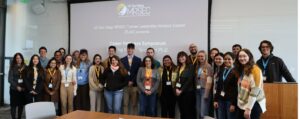
The UC San Diego MRSEC Trainee Leadership Advisory Council (TLAC) is excited to announce the success of the 2024 Career Pathways Symposium, a day dedicated to the diverse career options available to trainees outside of the traditional realm of academia. This event featured a series of talks and roundtable discussions led by esteemed speakers who have navigated various post-PhD career paths. The symposium aimed to provide attendees with invaluable insights into alternative career trajectories beyond traditional academia.
Spotlight on Success: The Diverse Voices
 The event boasted a stellar lineup of renowned scientists, engineers, and entrepreneurs, each bringing their unique expertise and experiences to the table. Among them were Steve Mayfield, co-founder of Algenesis, who has made significant contributions to the field of biotechnology, and Luca Bonanomi, Materials Innovation Engineer at Patagonia, who shared his work to develop the horizons of sustainable and high-performance materials for textiles and beyond. Mariela Vazquez, an Advanced Chemist at Eastman Chemicals, described her inspiring path through academia to industry, while Stacy Ochoa, former Biology Lecturer and Director of Advising at San Diego State University (now an Assistant Teaching Professor in Molecular Biology at UCSD!), shared insights on how she’s balanced research and administrative commitments in her career with her passion for teaching. Rebecca Hanovice, Senior Director of Global Privacy at Topgolf Callaway Brands, provided a unique perspective on the intersection of law, technology, and sports innovation. Saleema Hassanali, a Research Scientist at Eli Lilly, offered valuable insights into pharmaceuticals career paths. Quinn Spadola, Deputy Director at the National Nanotechnology Coordination Office shared her story as a scientist-filmmaker and advocate for the public understanding of science and shed light on the NNCO’s role in bridging the gap between the scientific community, the programs that sponsor scientific research, and the stakeholders and decision makers in government. Finally, UC San Diego MRSEC’s very own, Stacey Brydges shared her experience weaving her passionate commitment to scientific outreach and teaching programs with her research, which has evolved in focus from organometallics during her PhD to STEM student success now as Teaching Professor in Chemistry and Vice Chair of EDI and Climate.
The event boasted a stellar lineup of renowned scientists, engineers, and entrepreneurs, each bringing their unique expertise and experiences to the table. Among them were Steve Mayfield, co-founder of Algenesis, who has made significant contributions to the field of biotechnology, and Luca Bonanomi, Materials Innovation Engineer at Patagonia, who shared his work to develop the horizons of sustainable and high-performance materials for textiles and beyond. Mariela Vazquez, an Advanced Chemist at Eastman Chemicals, described her inspiring path through academia to industry, while Stacy Ochoa, former Biology Lecturer and Director of Advising at San Diego State University (now an Assistant Teaching Professor in Molecular Biology at UCSD!), shared insights on how she’s balanced research and administrative commitments in her career with her passion for teaching. Rebecca Hanovice, Senior Director of Global Privacy at Topgolf Callaway Brands, provided a unique perspective on the intersection of law, technology, and sports innovation. Saleema Hassanali, a Research Scientist at Eli Lilly, offered valuable insights into pharmaceuticals career paths. Quinn Spadola, Deputy Director at the National Nanotechnology Coordination Office shared her story as a scientist-filmmaker and advocate for the public understanding of science and shed light on the NNCO’s role in bridging the gap between the scientific community, the programs that sponsor scientific research, and the stakeholders and decision makers in government. Finally, UC San Diego MRSEC’s very own, Stacey Brydges shared her experience weaving her passionate commitment to scientific outreach and teaching programs with her research, which has evolved in focus from organometallics during her PhD to STEM student success now as Teaching Professor in Chemistry and Vice Chair of EDI and Climate.
Bridging Boundaries
This symposium aligned perfectly with the core values of the UC San Diego MRSEC, emphasizing the integration of research and education, and the promotion of interdisciplinary collaboration. By showcasing diverse career pathways and facilitating discussions with accomplished professionals, the event empowers attendees to explore non-traditional career options while highlighting the versatility of skills gained through doctoral training. Furthermore, the symposium serves as a platform to strengthen community engagement and foster connections between academia and industry, reinforcing UC San Diego MRSEC's commitment to bridging the gap between scientific research and societal impact.
Congratulations to MRSEC Trainees Debika Datta and Luis Palomino!
November 2023

Debika Datta, a postdoctoral researcher from IRG 2 has co-authored an article “Engineered ‘living materials’ could help clean up water pollution one day” published on The Conversation. Debika and Professor Jonathan K. Pokorski are working on an engineered living material that may be able to transform chemical dye pollutants from the textile industry into harmless substances. For more details click here!

Luis Palomino, a Phd student in Professor Pokorski's lab has been awarded second place and a cash prize of $750 in the poster competition at the Society of Hispanic Professional Engineers (SHPE) Convention in Salt Lake City, Utah. Held annually, this convention serves as the country’s largest gathering of Hispanic STEM students and professionals.
October 2023
Excerpts from the article:
Metastasis is a process involving the migration of cancer cells from their primary site to other parts of the body. Recent studies have identified S100A9, a protein typically released by immune cells, as a key player in this process. Its normal role is to regulate inflammation. However, an excess of S100A9 can attract cancer cells like a magnet, causing them to form aggressive tumors and facilitating their spread to other organs, such as the lungs.
A team led by Nicole Steinmetz, a professor of nanoengineering at the UC San Diego Jacobs School of Engineering, developed a vaccine candidate that can modulate the levels of S100A9 when it goes haywire. When injected subcutaneously, the vaccine stimulated the immune system in mice to produce antibodies against S100A9, effectively reducing the protein levels and minimizing cancer metastasis to the lungs. The vaccine also increased the expression of immune-stimulating proteins with anti-tumor properties, while decreasing the levels of immune-suppressing proteins.
Read the full story by Liezel Labios with publication links here.
October 2023
We are pleased to announce a call for proposals for the 2024 UC San Diego Materials Research Science and Engineering Center (MRSEC) Seed Grant Program. The program is open to all faculty members within the UC San Diego materials research community. Seed Grants in 2024 are intended to provide short-term funding to initiate exciting new research directions within the UC San Diego MRSEC. The goal of the 2024 Seed Grant Program is to support collaborative research that is innovative and offers a potential for developing new interdisciplinary research group (IRG) directions for a successful MRSEC re-competition. For more info on expectations, eligibility, review criteria and submission, please visit our SEED page.
October 2023

September 2023
IRG2 themed research, lead Prof. Steinmetz's lab, developed plant virus nanoparticles that can transport pesticide molecules to precise deep soil locations. This can help resolve the issue for excessive amount of pesticide use and water use, to combat parasitic nematodes that damage crop roots. Read the full highlight by Liezel Labios here.
“Delivery of Nematicides Using TMGMV-Derived Spherical Nanoparticles” Co-authors include Adam Caparco, Ivonne Gonzalez-Gamboa, Samuel S. Hays, Jon Pokorski, and Nicole Steinmetz.
September 2023
IRG2 themed research, 3D-Printed cyanobacteria, or living material, demonstrate effective ways to clean up polluted waters. Read the full highlight by Liezel Labios here. Research publication below.
“Phenotypically Complex Living Materials Containing Engineered Cyanobacteria.” Co-authors include Debika Datta*, Elliot L. Weiss*, Daniel Wangpraseurt, Erica Hild, Shaochen Chen, James W. Golden, Susan S. Golden and Jonathan K. Pokorski, all at UC San Diego.
2023 REU and UCSD-CSULB DDI Scholar, Ethan Lucsik, wins national award!
August 2023
 Ethan Lucsik received the 2023 ACS Colloid and Surface Chemistry PUI Student Award in the division of Surface Chemistry, pictured third from the right at the ACS meeting award reception. Ethan participated in the UCSD MRSEC 2023 RIMSE Summer School on Silicon Nanotechnology, as an REU and UCSD-CSULB DDI Scholar (UCSD and California State University, Long Beach partnered Doctoral Diversity Initiative). The UCSD-CSULB DDI goal is to increase diversity of students successfully completing PhD programs and entering leadership positions in academia in the field of Materials Science.
Ethan Lucsik received the 2023 ACS Colloid and Surface Chemistry PUI Student Award in the division of Surface Chemistry, pictured third from the right at the ACS meeting award reception. Ethan participated in the UCSD MRSEC 2023 RIMSE Summer School on Silicon Nanotechnology, as an REU and UCSD-CSULB DDI Scholar (UCSD and California State University, Long Beach partnered Doctoral Diversity Initiative). The UCSD-CSULB DDI goal is to increase diversity of students successfully completing PhD programs and entering leadership positions in academia in the field of Materials Science.
This accolade comes in addition to his RIMSE 2023 Award for Exceptional Achievement in Materials Analysis! Congratulations Ethan!
August 2023
 Congratulations to Dr. Debika Datta, for her recognition by ACS in Leadership in Promotion of Diversity, Equity, Inclusion and Respect! This recognition category highlights outstanding efforts that promote diversity, equity, inclusion, and respect in the program. Activities may include participation in recruitment to enhance diversity, engagement in impactful conversations that strengthen the culture of inclusivity, and efforts to identify and eliminate inequities in the department/institution-wide. Other recognition categories include Mentoring and Promotion of Research Safety.
Congratulations to Dr. Debika Datta, for her recognition by ACS in Leadership in Promotion of Diversity, Equity, Inclusion and Respect! This recognition category highlights outstanding efforts that promote diversity, equity, inclusion, and respect in the program. Activities may include participation in recruitment to enhance diversity, engagement in impactful conversations that strengthen the culture of inclusivity, and efforts to identify and eliminate inequities in the department/institution-wide. Other recognition categories include Mentoring and Promotion of Research Safety.
Debika also played a key leadership role in UC San Diego MRSEC's Trainee Leadership Advisory Committee (TLAC), as the IRG2 head representative, overseeing the subdivisions of the trainee committee in their efforts. TLAC acts a liaison between UC San Diego MRSEC trainees and leadership, providing means to identify trainee needs, issues, concerns, and suggestions for improvement and increase opportunities for collaboration within and across the IRG1 and IRG2 groups. Debika will be completing her two year TLAC Lead appointment in October 2023, and is currently mentoring her appointed successor, Aaron Bruckbauer.
July 2023

IRG1 Co-lead, Professor Tod Pascal and IRG1 Affiliate Trainee, Sasawat Jamnuch are among a team of international researchers that "has uncovered nanoscale changes inside solid-state batteries that could offer new insights into improving battery performance." Read the full UC San Diego Today article here by Liezel Labios.
June 2023

May 2023

IRG1 Trainee, Yufei Wang, from Prof. Andrea Tao's lab won the People's Choice Award for her poster presentation, “Computation-Guided Tunable Self-Assembly of Nanocrystals.” The People's Choice Award, was voted by the 2023 Research Expo participants, and came with a $500 cash prize and a Sony PlayStation® 5 console, courtesy of one of the event’s sponsors. Congrats Yufei!
The annual flagship event is an opportunity for graduate students to showcase their research to industry and community partners, recruiters, and faculty from across the Jacobs School. Read more here.
Congratulations to Prof. Darren Lipomi on 2023 Distinguished Teaching Award!
April 2023
IRG2 Faculty, Professor, Darren Lipomi has been selected by the Academic Senate Committee on Senate Award to receive the 2023 Distinguished Teaching Award!
April 2023

UC San Diego Women's Herstory Month: Congratulations to IRG2 Professors, Nicole Steinmetz and Jinhye Bae on their recent accomplishments!
March 2023
IRG 2 Co-lead, Professor, Nicole Steinmetz named as one of top 23 female academic entrepreneurs on 2023 Beaker List, amongst several Nobel laureates! Beaker List spotlights entrepreneurial life sciences professors pioneering translational science.
IRG2 Faculty, Professor Jinhye Bae has been selected as a 2023 PMSE Early Investigator Honoree (American Chemical Society Division of Polymeric Materials: Science & Engineering). The PMSE Early Investigator (EI) Symposium is a forum to highlight the professional accomplishments of early-career investigators who are emerging leaders in the field of polymer science and engineering, across academia, industry, and national labs and will take place at the Fall ACS Meeting in San Francisco, August 13-17, 2023.
Congratulations to Prof. Tod Pascal on Sloan Research Fellowship!
February 2023
IRG1 Co-lead, Professor Tod Pascal has been selected for 2023 Sloan Research fellowship, a prestigious award granted to promising researchers likely to emerge as the next generation of scientific leaders, the Aflred P. Sloan Foundation. Prof. Pascal was one of four recipients from UC San Diego and one of 17 early-career UC faculty. Each fellow receives a two-year, $75,000 fellowship, which can be used flexibly to advance their research. A Sloan Research fellowship is one of the most distinguished awards available to young researchers, in part because so many recipients have gone on to become unparalleled leaders in their fields — 57 Fellows have received a Nobel Prize, 17 have won the Fields Medal in mathematics, and 23 have won the John Bates Clark Medal in economics, including every winner since 2007.
UC San Diego Today article | UC press release| Sloan announcement
UC San Diego MRSEC Beach Clean-Up Event on Sat, Jan 14
The UC San Diego MRSEC Trainee Leadership Advisory Council (TLAC) organized a beach clean up on Sat., Jan. 14 as part of UC San Diego's Changemaker Week 2023 - an annual campus-wide initiative is dedicated to making our world more just, inclusive, and sustainable through public and community service, research, social innovation, and much more. Coordinated with “I Love A Clean San Diego”, the event aimed to highlight the problem with existing plastics and their impact on our environment, which the UCSD MRSEC is striving to solve by developing new biodegradable material using environmentally friendly processes.


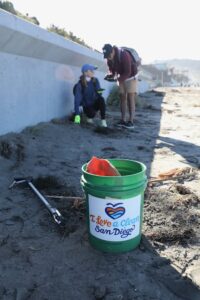
December 2022
 Zheng Chen, UC San Diego MRSEC SEED Faculty, lead team of scientists at UC San Diego and other institutions to win $10M grant from the US Department of Energy. The collaborative project aims to promote battery recycling and reuse. It's part of a $74M award from the United States Department of Energy program on Bipartisan Infrastructure Law for ten programs that are at the forefront of battery recycling technology for electric vehicles. In addition, the California Energy Commission is also contributing a $1.2M matching fund to support the development in California.
Zheng Chen, UC San Diego MRSEC SEED Faculty, lead team of scientists at UC San Diego and other institutions to win $10M grant from the US Department of Energy. The collaborative project aims to promote battery recycling and reuse. It's part of a $74M award from the United States Department of Energy program on Bipartisan Infrastructure Law for ten programs that are at the forefront of battery recycling technology for electric vehicles. In addition, the California Energy Commission is also contributing a $1.2M matching fund to support the development in California.

December 2022
Nicole Steinmetz, UC San Diego MRSEC Faculty, is among UC San Diego’s new inductees to the National Academy of Inventors (NAI). NAI fellowship is the highest professional distinction awarded to academic inventors. The NAI Fellows Program highlights academic inventors who have demonstrated a spirit of innovation in creating outstanding inventions that have made a tangible impact on the quality of life, economic development, and the welfare of society.
Read more here.
November 2022
The recent publication by our IRG1 trainees Yufei Wang, Amanda Chen, Krista Balto, Yu Xie; and faculty Joshua Figueroa, Tod Pascal, Andrea Tao in ACS Nano 2022, "Curvature-Selective Nanocrystal Surface Ligation Using Sterically-Encumbered Metal-Coordinating Ligands" represents the quality of collaborations, as well as quality of the science and engineering advances produced by the UC San Diego MRSEC.
Additional publication highlights:
- IRG2 trainee Jiayu Zhao and Prof. Jinhye Bae: "Programming mechanoluminescent behaviors of 3D printed cellular structures." (Nano Energy)
- Center Director Prof. Mike Sailor: "Porous Silicon-Based Nanomedicine for Simultaneous Management of Joint Inflammation and Bone Erosion in Rheumatoid Arthritis." (ACS Nano)
- IRG1 trainees Kyle Barcus, Po-An Lin, Yilong Zhou and Profs. Gaurav Arya and Seth Cohen: "Influence of Polymer Characteristics on the Self-Assembly of Polymer-Grafted Metal–Organic Framework Particles." (ACS Nano)
For all current publications, please visit Publications Page.
September 2022
We are pleased to announce a call for proposals for the 2023 UC San Diego Materials Research Science and Engineering Center (MRSEC) Seed Grant Program. The program is open to all faculty members within the UC San Diego materials research community. Seed Grants in 2023 are intended to provide short-term funding to initiate exciting new research directions within the UC San Diego MRSEC. The goal of the 2023 Seed Grant Program is to support collaborative research that is innovative and offers a potential for developing new interdisciplinary research group (IRG) directions for a successful MRSEC re-competition. Successful execution of the proposed research is expected to lead to additional federal grants and the potential for long-term MRSEC funding. Topics that are direct extensions of current IRG research will not be considered during this funding round.
Each Seed Grant will provide $25,000-$75,000 direct costs for a one-year project, with the potential for renewal for a second year or for continuous MRSEC support, subject to review. Each Seed Grant must include at least one faculty-level PI; collaborative proposals are encouraged, and funding decisions will consider the scope of the project. We anticipate funding 1-2 new awards this cycle.
KEY DATES:
INFO Session: Wednesday, 10/12/22 (please register here for the zoom link)
Proposal submission deadline: Monday, 11/07/22
Proposal outcome notification: 12/15/22
Target start date for Seed Grants: 1/1/2023
For more information on eligibility, review criteria, please visit the SEED page.
October 2022
 MRSEC Latest Stories: Engineering a Solution to a Skin-Deep Problem of Blood Oxygen Measurements
MRSEC Latest Stories: Engineering a Solution to a Skin-Deep Problem of Blood Oxygen Measurements
Blood oxygen monitoring is one of the main methods to determine if COVID-19 patients need immediate medical attention, but the devices used for these measurements can be less accurate on darker skin tones. A team of UC San Diego researchers led by Jesse Jokerst, a professor of nanoengineering, developed an equation to correct this discrepancy. Read More»
UC San Diego MRSEC Academic Affiliate, Erkki Ruoslahti wins Lasker Award!
September 2022
Dr. Erkki Ruoslahti, Distinguished Professor Emeritus at the Sanford Burnham Prebys Medical Research Institute and an Academic Affiliate of the UC San Diego MRSEC, was announced as one of three winners of the Albert Lasker Basic Medical Research Award. Dr. Ruoslahti is a longstanding collaborator of many of us here at UC San Diego. Congratulations Erkki!
Often referred to as “The American Nobel Prize", the Lasker Award is the most prestigious American award given for biomedical research. He shares the $250,000 prize with Richard O. Hynes of MIT and Timothy A. Springer of Boston Children’s Hospital/Harvard Medical School. They were given the award in recognition of their discoveries of integrins, proteins expressed at the cell surface which are key mediators of cell-matrix and cell-cell adhesion. Integrins are implicated in numerous diseases including cancer.
For more information: https://

September 2022
The Center's IRG2 Co-Lead and PI, Nicole Steinmetz, named a 2022 Biomedical Engineering Society (BMES) Fellow! Congratulations!
The BMES Grade of Fellow is a professional distinction granted by the Board of Directors to a BMES member. This individual has demonstrated impactful achievements and has made significant contributions to the biomedical engineering community. They also have considerable leadership within their field of interest and served within the Society.
July 2022
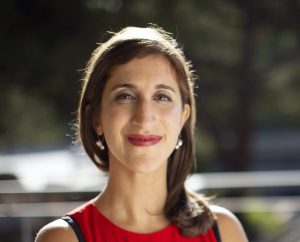 Congratulations to our IRG2 SEED Faculty, Lisa Poulikakos, being named a recipient of the 2022 Beckman Young Investigator Award!
Congratulations to our IRG2 SEED Faculty, Lisa Poulikakos, being named a recipient of the 2022 Beckman Young Investigator Award!
UC San Diego MRSEC trainees, Dong Le and Baharak Sayahpour awarded the 2022 American Society of Materials (ASM) International Abe Hurlich Award!
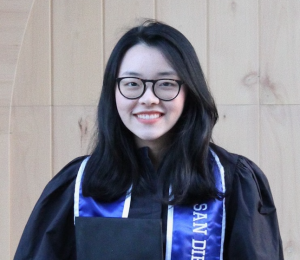
July 2022
Congratulations to our IRG1 trainees, Dong Le (Image 1) and Baharak Sayahpour (Image 2), for receiving the 2022 American Society of Materials (ASM) International Abe Hurlich Award (the San Diego chapter)!
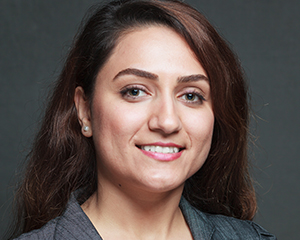
UC San Diego MRSEC trainee, Krista Balto awarded Department of Chemistry and Biochemistry Teddy Traylor Award!
July 2022
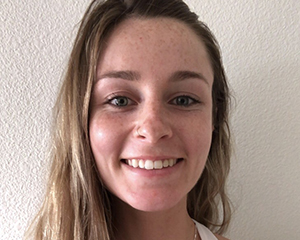 Congratulations to our IRG1 trainee, Krista Balto, for winning the UC San Diego Department of Chemistry and Biochemistry Teddy Traylor Award for her work in MOFs and her UC San Diego MRSEC project! The Teddy Traylor Award is for given for meritorious research and productivity by a third or fourth year graduate students.
Congratulations to our IRG1 trainee, Krista Balto, for winning the UC San Diego Department of Chemistry and Biochemistry Teddy Traylor Award for her work in MOFs and her UC San Diego MRSEC project! The Teddy Traylor Award is for given for meritorious research and productivity by a third or fourth year graduate students.
The Teddy Traylor Award is named after one of the department's founding faculty member, a pioneer in organometallic chemistry, with a remarkable history. Professor Traylor taught organic chemistry courses, and incorporated innovative teaching methods, such as using a banjo to illustrate the wave-like properties of electrons. Additional information about Prof. Traylor can be found here: http://texts.cdlib.org/
UC San Diego MRSEC publication featuring IRG1 faculty Tod Pascal, David Fenning and IRG1 Trainee Affiliate Pedram Abbasi selected for cover of Nano Letters
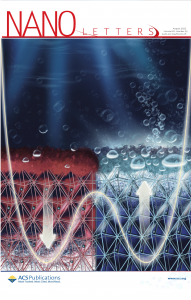
May 2022
"Modulation of Surface Electronic States in epitaxial BaTiO3 for Enhanced Hydrogen Evolution Activity." Abbasi P, Barrone M ,Valdespino-Padilla D, Salev P, Kim T, Paik H, Jáuregui M, Schuller IK, Schlom DG, Pascal TA and Fenning DP, Nano Letters, in press. doi://10.1021/acs.nanolett.
The above multi-IRG1 faculty and trainee publication cover image for manuscript was selected for upcoming Nano Letters Journal print in August 2022. Nano Letters is a monthly peer-reviewed scientific journal published by the American Chemical Society.
Congratulations to IRG1 Faculty, Professor Alex Frañó, for winning 2022 Physical Sciences EDI Excellence Award!
May 2022
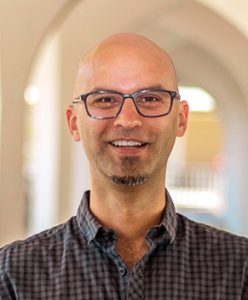
Assistant Professor of Physics Alex Frañó incorporates EDI into his research, teaching and outreach. He has mentored students from the Cal-Bridge Physics & Astronomy South Steering Committee as well as UC LEADS and the University Center of Exemplary Mentoring program.
Frañó’s research group includes numerous students and postdoctoral scholars from underrepresented groups. He created a classroom project that allows students to choose a faculty research paper and interview that faculty member about their work. This is especially impactful for underrepresented students who often have less opportunity to connect with faculty and research. Frañó recently received the American Physical Society Forum Diversity and Inclusion Award for Early Career Scientists.
The awards were created by the division’s EDI committee, comprised of faculty and staff from the chemistry and biochemistry, mathematics and physics departments. EDI initiatives are driven by the ongoing efforts of the faculty, students, postdoctoral scholars and staff within the division. These awards honor those who have generated intentional, sustained, impactful and innovative EDI efforts.
2021 REU Participant, Rachel Myers, awarded Goldwater Scholarship for STEM research
April 2022
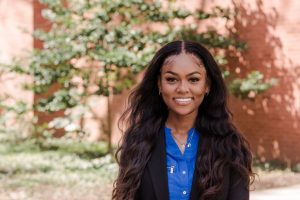
Congratulations to Rachel Myers, a 2021 UC San Diego MRSEC REU participant, for her 2022 Goldwater Scholarship award. Rachel is completing her B.S. at University of Maryland Baltimore County in chemical engineering. The Barry Goldwater Scholarship and Excellence in Education Program is designed to provide the United States with “a continuing source of highly qualified scientists, mathematicians, and engineers” to move the nation forward. More than 1,200 students applied from over 425 institutions across the country this year. The program selected a total of 417 scholars to receive Goldwater scholarships for 2022-23.
UMBC News
2022 Goldwater Scholars
Professors Darren Lipomi and Shaochen Chen awarded National Science Foundation's (NSF) BRITE Awards
March 2022
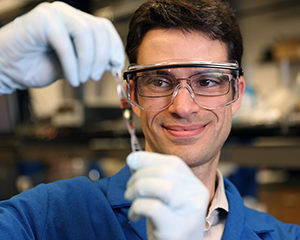 Congratulations to IRG2’s Professor Darren Lipomi for receiving the NSF's Boosting Research Ideas for Transformative and Equitable Advances in Engineering (BRITE) Pivot Award! The BRITE Pivot award is intended to enable researchers to quickly adapt to the fast-moving pace of research and create new knowledge and research products in their field by infusing new concepts from a different discipline or sub-field.
Congratulations to IRG2’s Professor Darren Lipomi for receiving the NSF's Boosting Research Ideas for Transformative and Equitable Advances in Engineering (BRITE) Pivot Award! The BRITE Pivot award is intended to enable researchers to quickly adapt to the fast-moving pace of research and create new knowledge and research products in their field by infusing new concepts from a different discipline or sub-field.
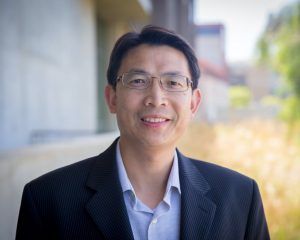 Congratulations to our SEED program's Professor Shaochen Chen, for receiving NSF's BRITE Fellow grant for "Intelligent Nanoscale 3D Biomanufacturing Towards Human-on-a-Chip." As a Principal Investigator Prof. Chen will create a nanoscale biomanufacturing platform powered by artificial intelligence that can serve as a functional, three-dimensional model of human tissues, organs and systems. This “human-on-a-chip” could transform regenerative medicine and tools for disease modeling, drug screening, environmental studies and other applications.
Congratulations to our SEED program's Professor Shaochen Chen, for receiving NSF's BRITE Fellow grant for "Intelligent Nanoscale 3D Biomanufacturing Towards Human-on-a-Chip." As a Principal Investigator Prof. Chen will create a nanoscale biomanufacturing platform powered by artificial intelligence that can serve as a functional, three-dimensional model of human tissues, organs and systems. This “human-on-a-chip” could transform regenerative medicine and tools for disease modeling, drug screening, environmental studies and other applications.
Professor Tod Pascal awarded National Science Foundation's (NSF) CAREER Award
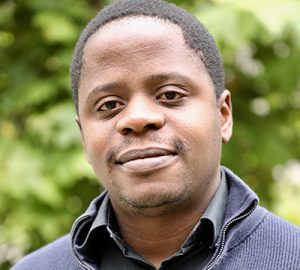 Congratulations to IRG1’s Professor Tod Pascal for winning a CAREER award from the National Science Foundation (NSF)! The Faculty Early Career Development (CAREER) Program is a Foundation-wide activity that offers the National Science Foundation’s most prestigious awards in support of early-career faculty who have the potential to serve as academic role models in research and education and to lead advances in the mission of their department or organization
Congratulations to IRG1’s Professor Tod Pascal for winning a CAREER award from the National Science Foundation (NSF)! The Faculty Early Career Development (CAREER) Program is a Foundation-wide activity that offers the National Science Foundation’s most prestigious awards in support of early-career faculty who have the potential to serve as academic role models in research and education and to lead advances in the mission of their department or organization
Dr. Pascal recently was featured in a podcast with the National Nanotech Initiative office, talking about MRSEC activities and research.
Friday, February 11th is the International Day of Women and Girls in Science

For more info visit https://www.un.org/en/observances/women-and-girls-in-science-day/Messages

January 2022
Congratulations to Professor Shirley Meng on her recognition by the American Association for the Advancement of Science (AAAS), the largest general science organization in the world and publisher of the journal Science! As a 2021 AAAS Fellow, Professor Meng was cited for "innovative and original discovery of interfacial sciences in energy storage materials that has led to improved battery technologies." Her research group – the Laboratory for Energy Storage and Conversion (LESC) – focuses on functional nano- and micro-scale materials for energy storage and conversion. Her research focus includes the design, synthesis, processing, and operating characterization of energy storage materials in advanced rechargeable batteries; new intercalation materials for sodium ion batteries; and advanced flow batteries for large scale storage on the grid. For more information, visit https://ucsdnews.ucsd.edu/pressrelease/2021AAASFellows.
January 2022
NTEC 2022 is supported by participating sites of the NSF-funded National Nanotechnology Coordinated Infrastructure (NNCI). Student-led teams can receive funding or in-kind facility access and mentorship to develop nano-enabled innovations. NTEC awards:
- Provide resources to help students use nanotechnology to solve real-world problems in society
- Encourage innovation and entrepreneurship through diverse, student-led teams involved in sites of the NSF-funded National Nanotechnology Coordinated Infrastructure
- Educate students on the technology transfer process and programs like NSF I-Corps
- Encourage commercialization of original ideas OR IP available for license through NNCI sites
For more information on awards and eligibility, please click here.
Deadline to apply: February 11, 2022
If you are interested to apply, please email Yves Theriault at: ytheriault@ucsd.edu for the application form and guidance.
Please also visit San Diego Nanotechnology Infrastructure (SDNI) NanoTechnology Educational Resources website.
December 2021

Pilot group of seven Francis Parker students and two faculty visit UC San Diego MRSEC to explore research opportunities and partnerships to improve and expand K-12 education in STEM fields. The group was hosted by Professor Mike Sailor and Professor Tod Pascal for half a day to tour the Center and its facilities. For more details, please click here.
Submission deadline: November 22, 2021 (11:59 pm PDT) via ucsd.infoready4.com
We are pleased to announce a call for proposals for the 2021-2022 UC San MRSEC Seed Grant Program. The program is open to all faculty members within the UC San Diego materials research community. . Seed Grants in 2021 are intended to provide short-term funding to initiate exciting new research directions within the UC San Diego MRSEC. The goal of the 2021 Seed Grant Program is to support collaborative research that is innovative and offers a potential for developing new IRG directions. Successful execution of the proposed research is expected to lead to additional federal grants and the potential for long-term MRSEC funding.
IRG1 focuses on synthetic and computational aspects of the mesoscale assembly of materials. IRG2 seeks to develop stimuli-responsive ‘living materials’ by merging polymer science with synthetic biology.
Each Seed Grant will provide $25,000-$75,000 direct costs for a one-year project, with the potential for renewal for a second year or for continuous IRG support, subject to review. For more information on eligibility, review criteria and proposal submission, click here.
For 2020-2021 Seed Project Faculty & Collaborators, click here.
April 8, 2021 | Source: Materials Research Society
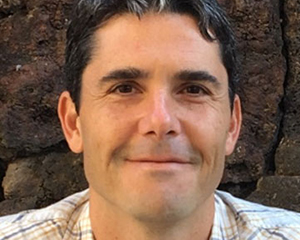
Dr. Akif Tezcan, Professor at the Chemistry & Biochemistry Department at UC San Diego, and UC San Diego MRSEC IRG1-Affiliated Faculty has been awarded the 2021 Guggenheim Fellowship. Appointed on the basis of prior achievement and exceptional promise, the successful candidates were chosen from a group of almost 3,000 applicants. Created in 1925 by Senator Simon and Olga Guggenheim in memory of their son John Simon Guggenheim, the Foundation has offered fellowships to exceptional individuals in pursuit of scholarship in any field of knowledge and creation in any art form, under the freest possible conditions.
Read the full story here.
March 31, 2021 | Source: Materials Research Society

Dr. Shirley Meng, Professor at the Department of Nanoengineering at UC San Diego, Director of the Institute for Materials Discovery and Design (IMDD), and UC San Diego MRSEC's Facilities/External Relations Lead has been selected to the Class of 2021 MRS Fellows. The title of MRS Fellow honors those MRS members who are notable for their distinguished research accomplishments and their outstanding contributions to the advancement of materials research, world-wide. The maximum number of new Fellow appointments each year is limited up to 0.2% of the current MRS regular membership and to those with continuous engagement with MRS. Thus, the distinction is highly selective. Congratulations, Professor Meng!
For additional information, visit https://www.mrs.org/careers-advancement/awards/spring-awards/mrs-fellows/list-of-mrs-fellows
March 9, 2021 | Source: UC San Diego Jacobs School of Engineering

Professor at the Department of Nanoengineering at UC San Diego, and the UC San Diego MRSEC IRG2 Co-Lead, Dr. Nicole Steinmetz, was honored to become a Fellow of the International Association of Advanced Materials in recognition of her contribution to "Advancement of Materials to Global Excellence". Congratulations, Professor Steinmetz!
Professor Alex Frañó named a 2021 Cottrell Scholar
February 9, 2021 | Source: Research Corporation for Science Advancement
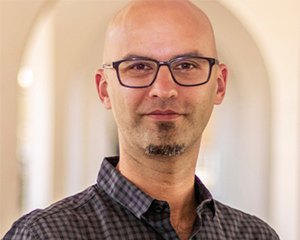 Research Corporation for Science Advancement has named 25 outstanding teacher-scholars in chemistry, physics, and astronomy as recipients of its 2021 Cottrell Scholar Awards. Alex Frañó, Professor at the Department of Physics at the University of California San Diego, and a MRSEC-affiliated faculty was among this year's recipients.
Research Corporation for Science Advancement has named 25 outstanding teacher-scholars in chemistry, physics, and astronomy as recipients of its 2021 Cottrell Scholar Awards. Alex Frañó, Professor at the Department of Physics at the University of California San Diego, and a MRSEC-affiliated faculty was among this year's recipients.
Recipients are chosen through a rigorous peer-review process of applications from top research universities, degree-granting research institutes, and primarily undergraduate institutions in the United States and Canada. Their award proposals incorporate both science education and research. Each award is $100,000. Congratulations, Professor Frañó!
Read the full story here.
Congratulations to the MRSEC 2020 Seed Grant Recipients!
February 4, 2021 | Source: UC San Diego MRSEC
The MRSEC 2020 Seed Grant Recipients are:
IRG1:
Alina Schimpf, Assistant Professor, Chemistry & Biochemistry. Proposal Title: Precise Synthesis of Nanocrystal Building-Blocks
Zheng Chen, Assistant Professor, Nanoengineering. Proposal Title: Hierarchical Assembly of Structurally Oriented Metal-Organic Frameworks as Novel Ionic Conductors
IRG2:
Donald Sirbuly, Associate Professor, Nanoengineering. Proposal Title: Nanofiber optics for in situ real-time nanometrology
October 30, 2020 | Source: UC San Diego Jacobs School of Engineering
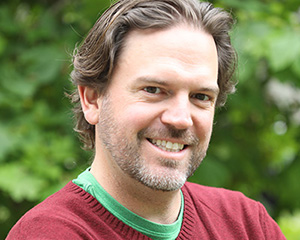 The U.S. Department of Energy (DOE) has announced more than $27 million in funding for 12 projects that will support the development of advanced renewable plastics and new recyclable-by-design plastics. Two of the dozen projects—collectively funded for more than $4 million—belong to UC San Diego researchers: Professor of Chemistry and Biochemistry, and Director of the Center for Renewable Materials, Michael Burkart and Professor of Nanoengineering Jon Pokorski (pictured right), both part of the university’s Institute for Materials Discovery and Design.
The U.S. Department of Energy (DOE) has announced more than $27 million in funding for 12 projects that will support the development of advanced renewable plastics and new recyclable-by-design plastics. Two of the dozen projects—collectively funded for more than $4 million—belong to UC San Diego researchers: Professor of Chemistry and Biochemistry, and Director of the Center for Renewable Materials, Michael Burkart and Professor of Nanoengineering Jon Pokorski (pictured right), both part of the university’s Institute for Materials Discovery and Design.
Part of DOE’s Plastics Innovation Challenge, these projects will help improve existing recycling processes that break plastics into chemical building blocks, which can in turn be used to make new products. For example, Burkart, Skip Pomeroy (chemistry and biochemistry) and Stephen Mayfield (biology) have developed algae-based polyurethane foams used in commercial products like surfboards and flip-flops that are partially biodegradable. The new $2 million from the DOE toward their project will further their goal of achieving full renewability.
Read the full story here.
September 8, 2020 | Source: UC San Diego MRSEC
UC San Diego MRSEC is announcing a call for proposals for its 2020 Seed Grant program. This program aims to initiate collaborations complementary to the two MRSEC Interdisciplinary Research Groups (IRGs): IRG 1: synthetic and computational aspects of the mesoscale assembly of materials; IRG2: stimuli-responsive ‘living materials’ by merging polymer science with synthetic biology.
Each Seed Grant will provide $25K-$75K, for a one-year project and must include one faculty-member PI, in addition to two or more faculty collaborators currently within the MRSEC. 2-3 awards are anticipated. Eligible applicants are ladder-rank UC San Diego Faculty members not currently within a UC San Diego MRSEC IRG. Proposals must be submitted through ucsd.infoready4.com by November 13, 2020, 11:59PM Pacific Time
August 13, 2020 | Source: UC San Diego News
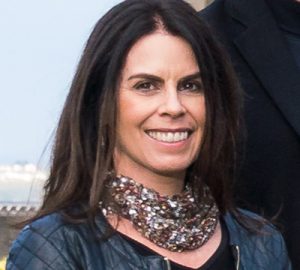
Women in the Department of Chemistry and Biochemistry are taking bold steps toward increased balance and fairness on campus. For example, Department Chair and Distinguished Professor Vicki Grassian set the pace by establishing the role of Vice Chair of Equity, Diversity, Inclusion and Climate (VC-EDIC). Professor Stacey Brydges—a long-time leader in chemistry education and ardent champion of social justice and access to/retention in STEM—quickened the pace when she became the inaugural vice chair.
Grassian is a leader who works collaboratively to effect change. She previously served as executive associate dean for the Division of Physical Sciences and led the Task Force on the Status of Women in the Physical Sciences along with Associate Dean of EDI Alison Coil. Brydges, who was part of that task force—along with other scientists in the division—said that the processes and products used by the task force offer a great template from which to work.
Full article here.
JULY 16, 2020 | Source: Energy.gov
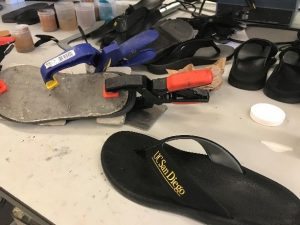
A flip flop prototype made by Algenesis in their UCSD laboratory. Photo credit: Daniel Fishman
Foams are a ubiquitous consumer product, supporting people in many different ways – think yoga mats, seat cushions, mattresses, insulation, footwear, and more. These diverse products all have one thing in common: they’re made from polyurethane. Most polyurethanes are made from petroleum, but in recent years foam makers have tried to incorporate renewable building blocks made from plants and algae. Until now, creating foams entirely from plants and algae was impractical, but researchers at Algenesis in La Jolla, California, are making exciting progress towards changing that!
When the Advanced Algal Systems team at the Bioenergy Technologies Office (BETO), led by technical manager Daniel Fishman, last caught up with this group of researchers based at the University of California, San Diego (UC San Diego), including this blog’s co-author Professor Michael Burkart (IRG 2), they were making waves (literally!) with the world’s first algae-based surfboard. While that breakthrough generated interest globally, the BETO and UCSD project partners knew there was more work to be done, because the foam that went into the surfboard, and a range of other products like flip-flops, was only half algae. The other half of the foam recipe still called for a petroleum-based family of chemicals known as isocyanates.
Full article here.
JULY 9, 2020 | Source: UC San Diego News
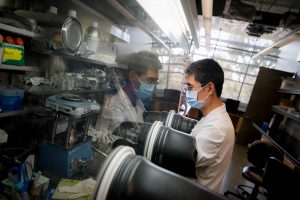
The UC San Diego MRSEC center provides sustained research and educational opportunities for both graduate and undergraduate students, with a particular focus on transfer students. Photos by Erik Jepsen/University Communications
The National Science Foundation has awarded University of California San Diego researchers a six-year $18 million grant to fund a new Materials Research Science and Engineering Center (MRSEC).
These research centers are transformative for the schools that earn them, putting their materials science research efforts into the global spotlight. In addition to research and facilities funding, MRSEC centers provide sustained research opportunities for both graduate and undergraduate students, and resources to focus on diversifying the pool of students studying materials science.
The UC San Diego labs funded by this new MRSEC will focus on two important, emerging approaches to build new materials aimed at improving human lives. The first research theme is all about developing new ways to control the properties of materials during their synthesis by controlling how they transition, from the smallest atomic building blocks to materials that are large enough to see with the human eye. The second research theme is focused on creating hybrid materials that incorporate living substances—microbes and plant cells—in order to create materials with new properties.
The new materials developed at UC San Diego will be used to improve the speed and accuracy of medical diagnostic tests, enable more effective therapeutics for disease treatment, quickly and efficiently decontaminate chemical or biological hazards, improve batteries, and reduce the cost of key industrial processes.
Full article here.

